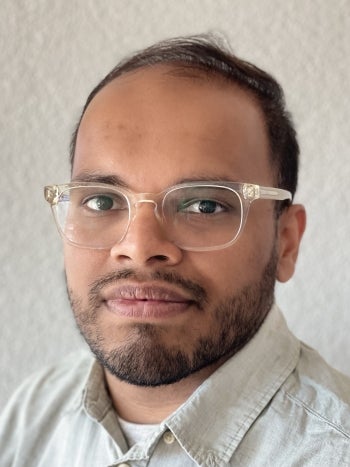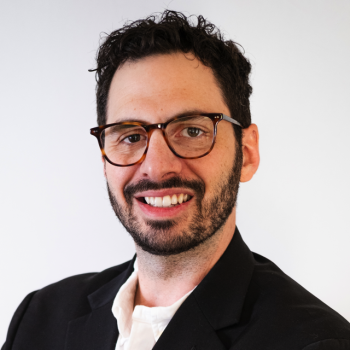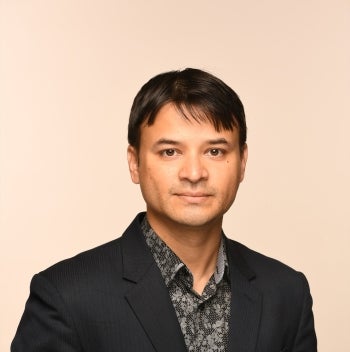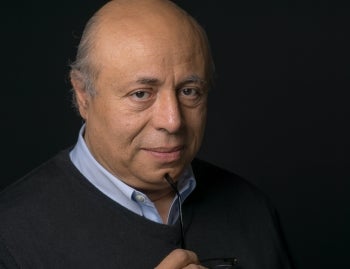Biodesign Institute welcomes four new faculty
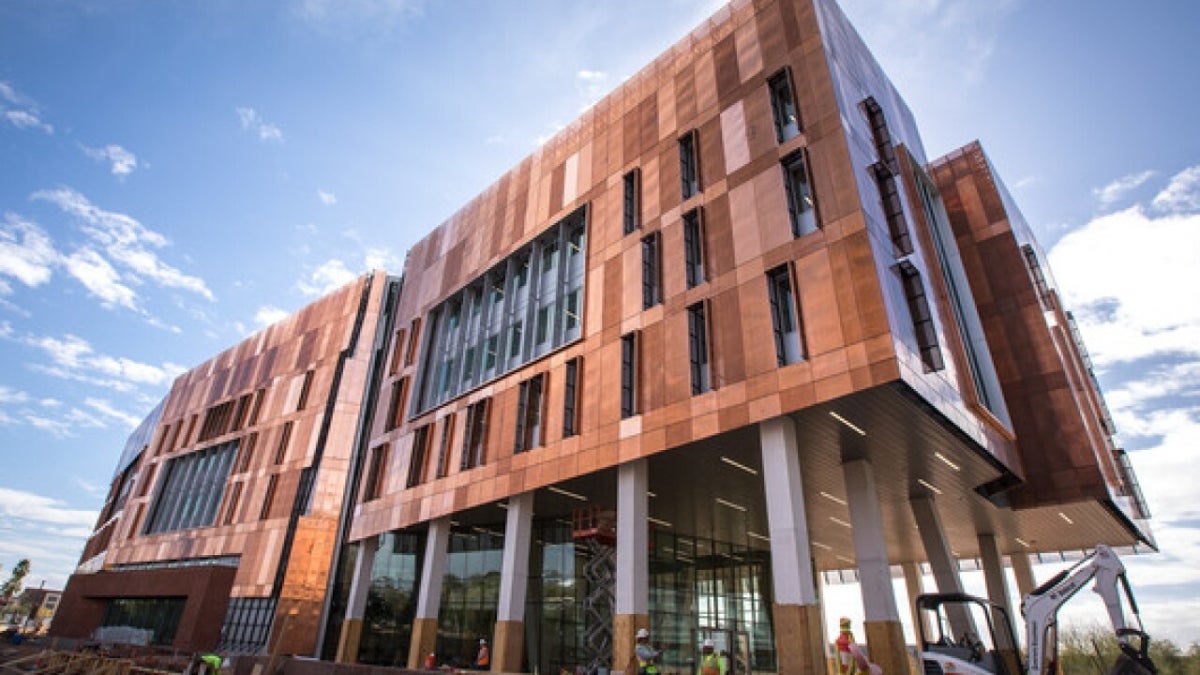
The Biodesign Institute at Arizona State University
The Biodesign Institute at Arizona State University is excited to welcome four new faculty members who will enhance the Institute’s strengths in microbiomics, biomaterials, digital health technologies, and compact free electron laser research. Each new faculty member brings a wealth of knowledge and expertise, reflecting our commitment to advancing scientific discovery and innovation.
Glen D’Souza
Glen D’Souza joins the Biodesign Center for Fundamental and Applied Microbiomics as a senior researcher, specializing in microbial ecology. His research focuses on understanding the role of subtle interactions in driving organismal evolution in nature, particularly how metabolic exchanges between bacterial species shape microbial communities. Using techniques including bacterial genetics, experimental evolution, and single-cell approaches such as microfluidics and high-throughput microscopy, D’Souza seeks to uncover the principles governing the emergence of metabolic interdependencies among bacterial cells and populations. His recent work demonstrates how bacteria can transition between solitary and collective growth modes depending on nutrient availability, providing insights into the ecological roles of these behaviors in nature.
D’Souza’s pioneering research has profound implications for our understanding of microbial communities' impact on ecosystems, human health, and disease. By examining the metabolic dependencies that arise in microbial populations, he aims to illuminate the evolutionary processes that have shaped these interactions. His approach combines advanced investigative techniques with theoretical insights, promising to significantly advance knowledge in the field of microbiomics.
Jordan Yaron
Jordan Yaron is an assistant professor of chemical engineering at ASU and a new faculty member with the Biodesign Institute’s Center for Biomaterials Innovation and Translation, though he has conducted research at Biodesign in various capacities since 2009. With a focus on molecular and biomaterial engineering, Yaron’s research aims to promote tissue repair in complex injuries. His innovative work has earned him several prestigious awards, including the NIH K01 Career Development Award, the Wound Healing Foundation 3M Fellowship Award, the Arizona Biomedical Research Centre New Investigator Award and a Flinn Foundation Translational Seed Grant. His expertise ranges from creating recombinant virus-based therapeutics to exploring the molecular factors that lead to adverse disease outcomes.
Yaron has built a rich and productive interdisciplinary career, contributing to the fields of biomaterials and tissue repair. His research stands at the intersection of molecular biology and engineering, addressing critical challenges in healthcare by developing advanced biomaterial solutions for injury recovery and disease management. His appointment reflects the Biodesign Institute’s dedication to promoting innovative research with real-world impact.
Mobashir Hasan Shandhi
Mobashir Hasan Shandhi is an assistant professor at ASU, with a joint appointment in the School of Electrical, Computer, and Energy Engineering and the Biodesign Center for Bioelectronics and Biosensors. Shandhi's research is devoted to advancing digital health technologies, particularly wearable sensors and computational algorithms for personalized healthcare and remote patient monitoring. His work addresses critical needs in managing chronic and infectious diseases by creating reliable, equitable solutions to improve patient outcomes and quality of life.
Shandhi brings a wealth of experience in digital medicine, having earned numerous accolades for his innovative work, including the American Heart Association Postdoctoral Fellowship, the NIH mHealth Training Institute Scholarship, an Early Career Fellowship and several paper awards, including Best Paper, Runner-up Best Paper, First Place Research and Distinguished Poster Nominee distinctions. His commitment to digital health and his leadership in biomedical research make him a valuable addition to the Biodesign Institute, where he will continue to push the boundaries of digital healthcare solutions.
Sami Tantawi
Sami Tantawi is a distinguished researcher joining the ASU faculty as a part of the Biodesign Institute and the ASU CXFEL Labs. With a Ph.D. in Electrical Engineering and a tenure as Chief Scientist at SLAC National Accelerator Laboratory, Tantawi is a leading figure in the field of accelerator technology. He has been instrumental in revolutionizing radio frequency (RF) linear accelerators and high-power RF systems, holding 12 U.S. patents in RF technology. For over seven years, he served as a spokesperson for the US Collaboration on High Gradient Research for Future Colliders. As a Fellow of the American Physical Society, he has led international collaborations to advance research in high-gradient room-temperature structures, contributing to applications in national security and cancer therapy.
Tantawi’s appointment marks a strategic enhancement of ASU's capabilities in compact free electron laser research. His expertise will be crucial in advancing the next generation of accelerators and their applications, delivering substantial benefits to scientific research and technological development.
